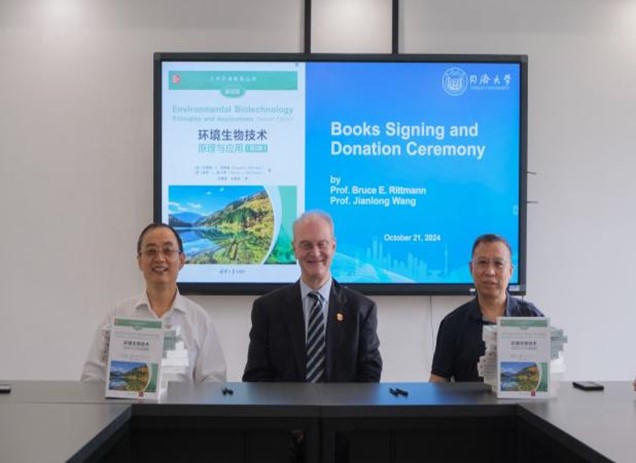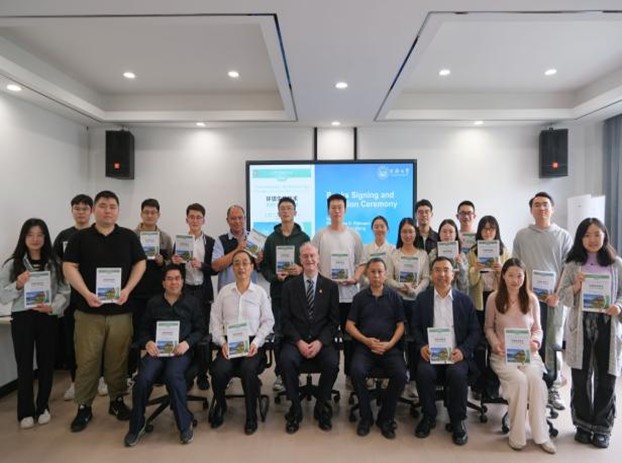On October 21, 2024, Professor Bruce E. Rittmann, a member of the U.S. National Academy of Engineering, and Professor Wang Jianlong from Tsinghua University, presented signed copies of the Chinese edition of their globally renowned book, Environmental Biotechnology: Principles and Applications (2nd Edition), to representatives of the faculty and students at our college. Professor Xia Siqing warmly welcomed and expressed gratitude to the two professors, also providing an introduction to his research group.
Professor Bruce E. Rittmann is an internationally renowned expert in environmental biotechnology, a regents’ professor at Arizona State University, and a member of the U.S. National Academy of Engineering. His primary research focuses on the fundamental principles of microbiology, biochemistry, geochemistry, and microbial ecological engineering. He received the 2018 Stockholm Water Prize, often referred to as the "Nobel Prize" in the water environment field. He has collaborated with Professor Xia Siqing's research group at Tongji University for over 20 years, earning the 2020 Shanghai International Science and Technology Cooperation Award and the 2023 People's Republic of China International Science and Technology Cooperation Award.
During the book-signing session, the two professors signed copies of Environmental Biotechnology: Principles and Applications (2nd Edition) for attendees. The book, co-authored by Bruce E. Rittmann and Perry L. McCarty, was translated into Chinese by Professors Wang Jianlong and Wen Xianghua. It is grounded in environmental microbiology, stoichiometry, and bacterial energetics, with wastewater biological treatment theory serving as its main framework. The book systematically and comprehensively explains the biological and engineering principles relevant to environmental pollution control and improvement, highlighting their major applications. It also focuses on emerging applications in environmental bioremediation, detoxification and degradation of toxic organic pollutants, and biological filtration for drinking water. With rich case studies, the book is designed to help readers gradually master analysis and design methods to address modern environmental challenges.
During the discussion session, faculty and students from Professor Xia Siqing’s research group engaged in in-depth conversations with the two professors on cutting-edge topics in the environmental field, research collaboration, and career development. Professors Rittmann and Wang patiently answered students' questions, encouraging young scholars to maintain curiosity and an innovative mindset in their research and to bravely tackle the complex challenges in the field of environmental science.

